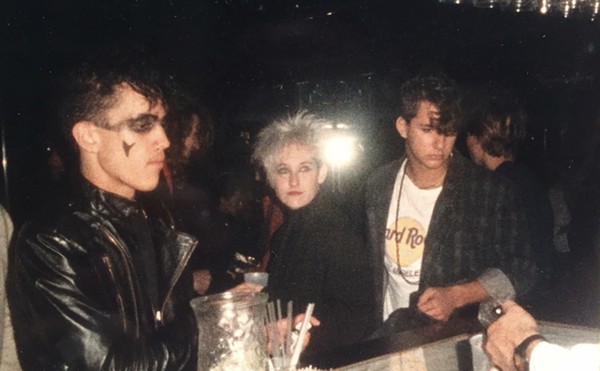People have said disparaging things about Bob Dylan’s singing voice for so long, it’s easy to forget that what made his early records so indelible was the way that voice perfectly matched Dylan’s songs. Knowing, sarcastic, and angry — but aware of the futility of anger — the voice conveyed youth, but never youthful naiveté. Little wonder that Joni Mitchell’s response to Dylan’s spiteful 1965 hit, “Positively 4th Street,” was that the American pop song had finally grown up.
The miracle of Dylan’s unlikely twilight renaissance over the last decade is that, once again, he’s found a voice that perfectly suits his content. In this case, however, the egg came before the chicken, because Dylan had little choice but to work with the deteriorating vocal equipment a long life of smoking, drinking, and touring had saddled him with. In his 40s, as that voice began to go, Dylan inevitably sounded churlish and self-loathing, alienated from his dwindling audience’s expectations and the changing shape of the world around him. But as he finally gave up all interest in remaining contemporary or popular, his career found a third act to rival anything that had come before it.
On the surface, Dylan remains as distrustful and detached as ever, but he’s found a sound and a voice — both artistic and physical — that have added complexity, humor, and pathos to what once felt like middle-aged, Luddite crankiness. As with Love and Theft, his astounding 2001 album, Modern Times finds Dylan in the role of the cagey old scoundrel, the weather-beaten, mischievous hustler who’s seen too much but keeps coming back for more. Modern Times also echoes its predecessor’s stylistic shifts from rollicking blues numbers (“Rollin’ and Tumblin’”) to breezy pop ballads (“Beyond the Horizon”) that sound like they could be emanating from a 1930s Victrola.
Love and Theft’s conceit felt fresher, and its wordplay was certainly wilder (also kitschier), but Dylan is operating with such grace these days, Modern Times works like an easy, unforced treasure. Dylan’s phrasing and sense of character are so sure that he can take a seemingly bitter line like, “This woman’s so crazy / I swear I ain’t gonna touch another one for years,” and make it oddly hilarious. And try imagining another songwriter who would rhyme, as Dylan does on the intensely moving “Workingman’s Blues #2,” “there’s an evening haze settling over town” with “the buying power of the proletariat’s gone down.” Dylan may be a universally admired legend, but he’s still strange as hell, and all the more relevant for it.
Second Round’s on Me, like Obie’s hometown of Detroit, has its highs and lows: It makes perfect sense at times, and struggles to find its way at others. But when it’s right, it’s stellar.
The first two tracks sneak up, mostly because of Eminem’s brooding production style. Synth bass and snapping kick drums drone under “Wake Up” and “Violent,” and one pleads for a unified black community while the other exposes Obie’s inner sadist. But it’s a setup, because the record explodes on its third song, “Wanna Know.” With a sample of Power of Zeus’s “It Couldn’t Be Me,” this rap-rock hybrid is a candidate for jam of the year, and an anthem that rivals Jay-Z’s “99 Problems.” It’s that good.
Trice weaves drama and intensity through songs like “Lay Down,” the Akon-produced “Snitch,” and “Ghetto,” on which Trey Songz turns in the lone scene-stealing performance among the album’s guests. But Obie, as always stating his case simply and authentically, never disappears. “Four niggas in the whip / All four say they ain’t fuckin’ with Trice’ shit / Somebody’s lyin’” — his unapologetic accusations are part of what make Second Round feel real.
No Slim Shady-released album is without a few commercial pushes, but in Obie’s case, none of them work. “Jamaican Girl” has been touted as a featured song; in truth, it’s filler. (Why are reggae-tinged tracks so often boring when Americans make them?) 50 Cent makes a lukewarm appearance on “Everywhere I Go,” and “Ballad of Obie Trice” unfolds like a tepid version of Jay-Z’s “Moment of Clarity” before thankfully ending quickly.
Nonetheless, Second Round rounds out strongly. Detroit heavyweight Big Herk jumps on “There They Go,” and again shows why he should be enjoying his own national success. He also preps you for “Obie Story,” the artist’s take on his own life.
At 18 tracks, Second Round is three songs too long. But give the Trice credit. He guides his second opus without gimmicks, makes some poignant commentary along the way, and knocks the majority of it out of the park. It’s worth the buy.
















